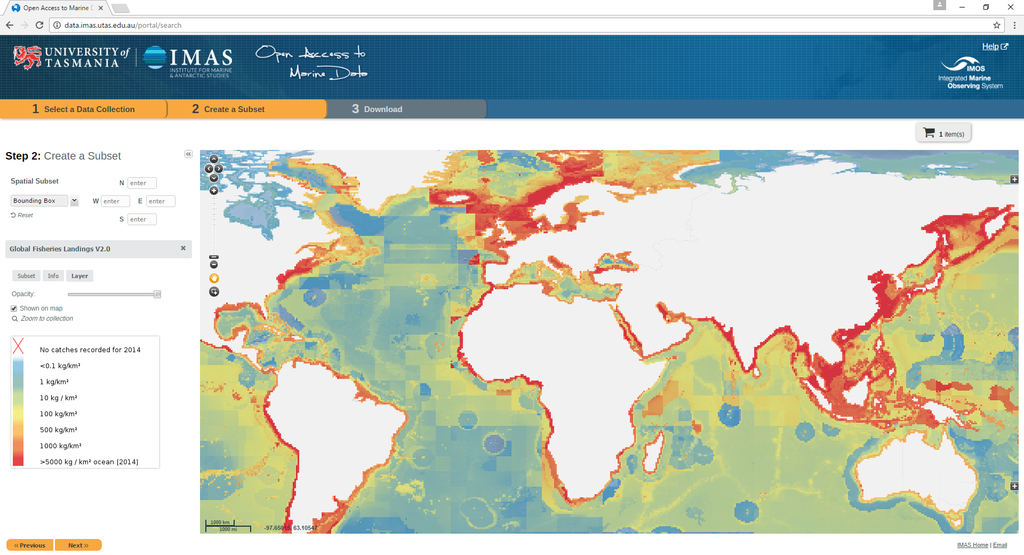
A unique fisheries database created by an IMAS researcher is providing unprecedented insights into global fishing catches between 1950 and 2014.
During the 65 years covered by the records, fishers from 193 countries caught more than 5.8 trillion tonnes of fish from 1443 species, including 892 million tonnes taken illegally and 629 million tonnes discarded at sea.
Featured in the latest edition of the Nature journal Scientific Data, the information was collated by Professor Reg Watson, who said it illustrated the finite nature of the global marine fishery.
“The database brings together every major international statistical collection of fisheries data since comprehensive records began, providing unique insights into the industry,” Professor Watson said.
“More than 867 million fishing records have been compiled into a single harmonised view (see image below) and mapped down to tiny spatial cells, so we can see where fishing has been happening and how it’s changed over time.
 “The total tonnage of fish taken per annum has been static for almost 30 years following rapid growth in the four decades after WWII, but overall it’s risen from 27.6 million tonnes in 1950 to 120.2 million tonnes in 2014
“The total tonnage of fish taken per annum has been static for almost 30 years following rapid growth in the four decades after WWII, but overall it’s risen from 27.6 million tonnes in 1950 to 120.2 million tonnes in 2014
“Since 1950, fisheries have moved further offshore and greatly intensified. We now have more vessels of a greater size and storage capacity, spending longer at sea and fishing in deeper waters.
“But while the oceans are vast, ultimately how much fish they produce is driven by the sun and photosynthesizing algae at the bottom of the food web.
“The annual take could yet increase If we took a bigger proportion of global fish stocks, but currently it’s peaked around 120 million tonnes, including 17 million tonnes taken illegally and 15 million tonnes discarded.”
Prof Watson said scientists worldwide are using the database, which was created with funding from the Australian Research Council (ARC), to inform their research into a wide range of issues.
“Researchers are using the data to study issues such as fisheries management, the global impact of fishing, and how the benefits accrue to different countries.
“The data also allows people to look at the interaction of, say, fishing and marine mammals as they feed offshore, and how fishing is impacting on the different eco-regions of the world.
“For example, a major CSIRO-led international study, published this month in The Lancet Planetary Health, used the data as part of an analysis of the global structure of agriculture and nutrient production,” Professor Watson said.
The Scientific Data paper is available here and the database can be found here.